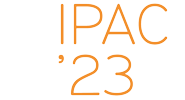Speaker
Description
Currently 26 RF stations are in operation at the European X-ray Free Electron Laser (XFEL) and all RF stations can deliver sufficient power to support 600 µs beam pulse with an energy up to 17 GeV. These beam parameters require a power consumption of about 4.9 MW for high-power RF. Of course, the simplest way to save power is to reduce the XFEL repetition rate, but with some additional work and research, and without modifying any hardware, we can save the modulator power, without any impact on the XFEL performance. To reduce the power, we offer two methods that can be used together or separately. The first one is to make full use of the available power of the klys-tron during the rise and fall time of the HV pulse, and partial use of the available power during cavity filling by using phase and amplitude compensation. As a result, we can reduce the length of the HV pulse, because we fill the cavities with energy earlier. The second one is to slowly reduce the klystron HV during flattop. In total we can reduce the power consumption up to 30%, at the cost of making the low-level RF control more complicated as it needs to deal with large phase and amplitude changes. To solve this problem, we propose a new feature, dynamic output vector correction (OVC). In this report we will present some of experimental results from the klystron test stand and from several XFEL RF stations.
| I have read and accept the Privacy Policy Statement | Yes |
|---|

